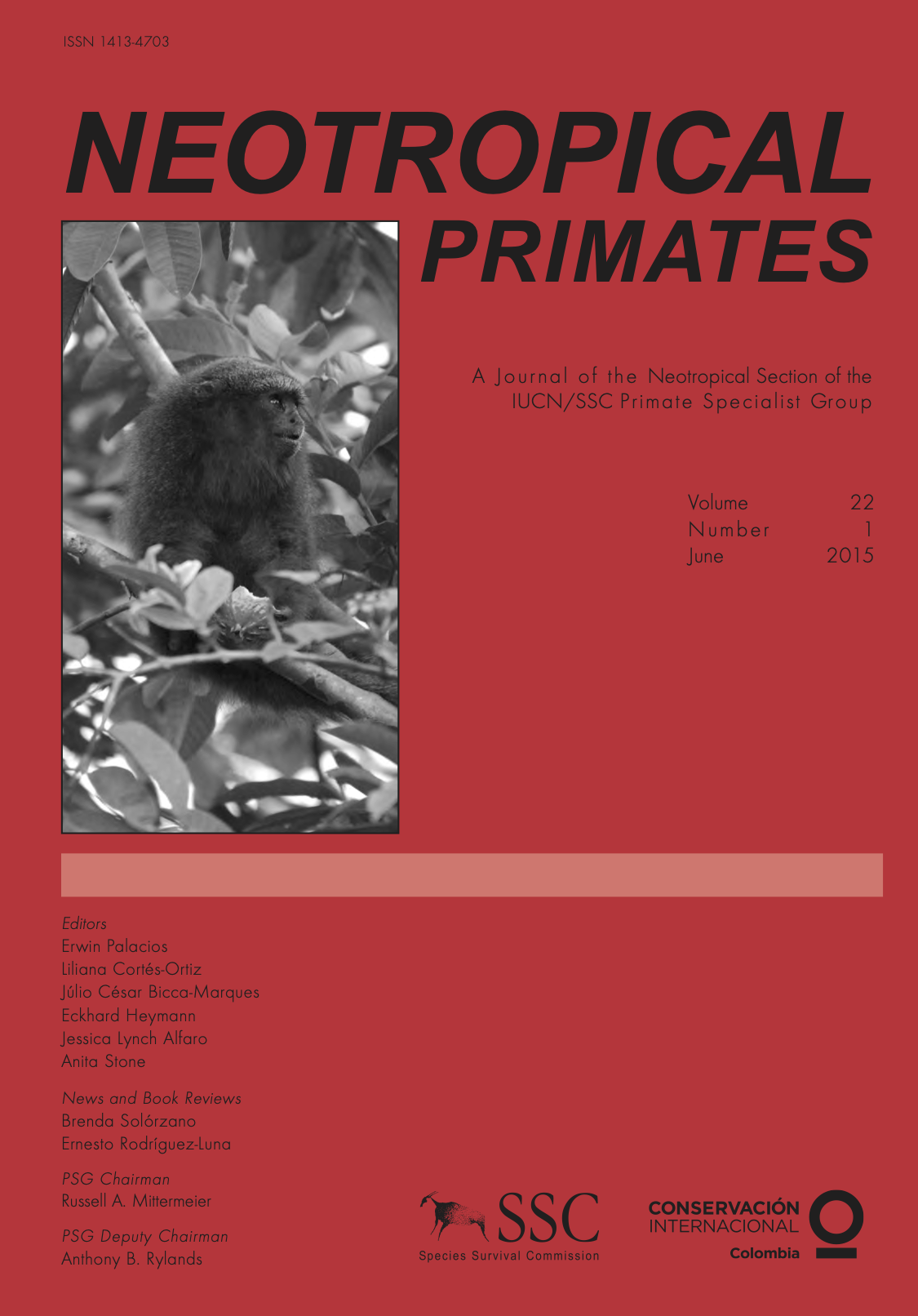Short-term learning of olfactory discrimination tasks in cotton-top tamarins (Saguinus oedipus)
DOI:
https://doi.org/10.62015/np.2015.v22.147Keywords:
Food selection, foraging, frugivory, generalist diet, olfaction, sense of smell, sensory ecologyAbstract
After years of near absence from the literature, olfaction is finally beginning to be recognized to have an important role in primate feeding ecology. Yet even though it is already clear that primates’ olfactory acuity is higher than previously thought, it is still unclear upon which parameters of the olfactory system selection pressures have worked to produce an efficient lineage-specific sense of smell. Here, we report experiments in which we presented a generalist primate, the cotton-top tamarin (Saguinus oedipus), with a series of olfactory discrimination tests in order to examine whether its generalist diet also yielded a general olfactory system. We show that tamarins are capable of discriminating between novel odors of several categories, learning to associate them with positive and negative rewards and use them as food selection cues. Although odors were from varying levels of ecological relevancy (fruity, herbal, and seafood), no differences in discrimination performance between were observed. Combined with partial learning and memorizing abilities, these results demonstrate a generalist olfactory system whose range of detectable compounds is not restricted to ecologically relevant odors and which relies on learning rather than innate responses.

Downloads
Published
Issue
Section
License

This work is licensed under a Creative Commons Attribution-NonCommercial-ShareAlike 4.0 International License.


